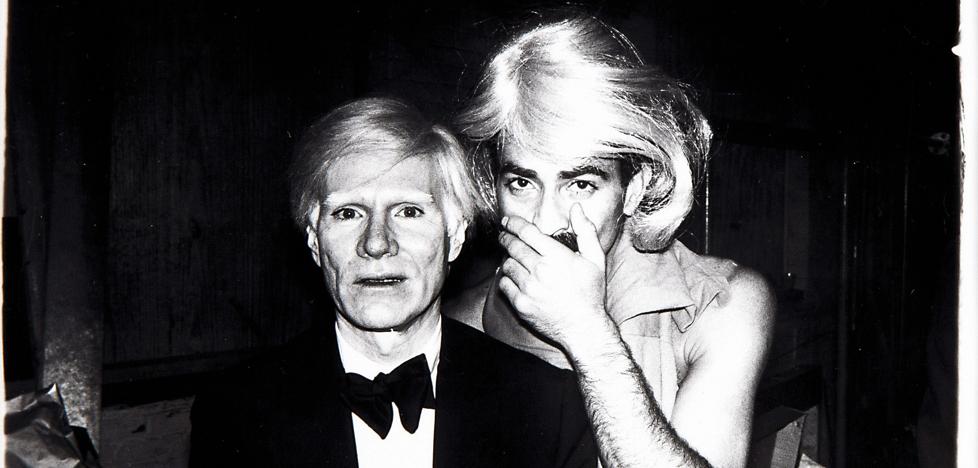Mark Taimanov, a leading chess player of the second half of the 20th century, was also one of the best pianists in the world. However, chess history remembers him for his humiliating defeat to Bobby Fischer.
At the beginning of 1937, the film ‘Beethoven’s concert’ was released in the Soviet Union, a Stalinist film in which two boys, Yanka and Vladik, receive lessons to become violin virtuosos. One of the film’s directors, Vladimir Shmidtgof, wrote the song “Oh, it’s good to live in the Soviet country,” not realizing that the song would become an anthem for the country’s youth. The catchy tune picks up heroic lines: “Oh it’s good to be a brave fighter / Oh it’s good to fly to the moon / Oh it’s good to read all the books / Break all the world records !” Generations of Russians have sung this verse. Overnight, the ten-year-old actor who played Yanka became a national star. His face was the image of the movie’s advertising poster. Everywhere he went, people recognized him. The younger was Mark Taimanov, one of the most fascinating characters in the history of music and chess.
The tape was awarded at the 1937 World’s Fair in Paris and screened for six weeks in New York, in a Broadway room. However, just a year later, Shmidtgof was arrested and tortured by the People’s Commissariat for Internal Affairs (NKVD), accused of being a German spy. Another curiosity: the conductor Karl Eliasberg appears in a scene of the film. On August 9, 1942, during the Nazi siege of Leningrad, it was Eliasberg who first conducted the performance of Shostakovich’s Seventh Symphony, a symbol of anti-fascist resistance. Hitler’s siege of the city lasted nearly nine hundred days and civilian casualties are estimated at one million. Mark Taimanov’s maternal aunt was eaten. Literal. “Cannibalism was common,” Taimanov himself admitted.
Taimanov was not a violinist. He played the piano. Despite this, the directors of the film had seen something special in him, so the boy was taught for six months by the great violinist Miron Polyakin. In the end Taimanov obeyed. And he did it with a note, never said better. He managed to move his hands with a natural touch and held the instrument correctly. “The morning after the premiere, I woke up famous,” recalls Taimanov. Fame made him the guest of honor at the opening of the Leningrad Palace of Pioneers. The director of the institution asked him, “What would you like to do with us, Mark?” And for some reason Taimanov answered: “Chess.” This is how his masterpiece began, the story of a man who lived between checks and staves, caught by the passion he felt for black and white.
Taimanov’s mother studied singing at the Kharkov Conservatory. The father was an engineer. I’ll tell you a family secret. This is a digression that seems relevant to me. Taimanov’s father attempted suicide. He was in love with the young singer, but her parents did not accept the marriage plans. Then, as in a Shakespearean tragedy, Taimanov’s father decided to commit suicide. “At the last moment someone ran into the room and snatched the gun from his hands. This happened before I was born,” Taimanov confessed in 2009. But let’s go back to history. Mark’s love of chess got precisely through the influence of his father. That’s why he answered “chess” when he talked about the Palace of Pioneers. That was the reason.
Taimanov began playing at the age of 11 at Mikhail Botvinnik’s school at the Leningrad Palace of Pioneers. At the same time, he was accepted as a piano student at one of the most prestigious music institutions in the city. There he met a friend of his age, Lyubov Brook, with whom he formed a duet and played pieces by Mozart and Chopin. In 1946, Mark and Lyubov got married. They were 19 years old. Together they performed concerts for the next 25 years. I suggest you search the internet for the video of them performing composer Darius Milhaud’s “Scaramouche” suite. They will find it only if they type “Lyubov Brook” and “Mark Taimanov” in Russian. If you have the opportunity, copy and paste the following line: “ЛЮБОВЬ БРУК и МАРК ТАЙМАНОВ”. It’s a real gem. It is not surprising that Philips Records and Steinway & Sons selected the duo for the regal collection ‘Great Pianists of the 20th Century’ that they released in 1999. In the words of Taimanov, this was the greatest achievement of his life.
The successes on the board were also not long in coming. In 1952, Taimanov took part in the International Student Chess Tournament that took place in Liverpool. Stalin signed the authorization for the trip in his own handwriting. Taimanov did not lose a game and tied for first place with his compatriot David Bronstein. That same year he became Grandmaster and a few months later he played his first Candidates tournament for the world title. Taimanov’s track record includes twenty-three participations in the USSR championship (he won it in 1956), an Olympic medal and a good number of victories against six world champions.
At the age of 84, Taimanov was awarded the 2010 Russian Nobel Prize for his outstanding sports and musical career. For the occasion, the Ludwig Nobel Foundation published ‘Remembering the best’, a book in which Taimanov discussed some of the most unforgettable moments he experienced, both inside and outside the board. Mark met Che Guevara – he even played chess with him – Winston Churchill, Juan Domingo Perón and Shostakovich, whom he considered a good friend. A chess diagram appears on the cover of the book. It belongs to the match in which Taimanov took on Anatoli Karpov in the tournament held in 1977 on the occasion of the 60th anniversary of the October Revolution. The game has become Taimanov’s ‘magnum opus’. His black knight’s master stroke in move 38 is pure magic, a flash of genius, the numen that lands, maybe once in a lifetime, on the shoulder of true artists.
But not all was applause and recognition. Taimanov has even gone down in chess history as the man who lost to Bobby Fischer. He himself summed it up with poetic melancholy: “Until my duel with Fischer in 1971, everything went smoothly in my chess career, but this dramatic game turned my life into hell.” It all happened in Vancouver, during the quarter-finals of the Candidates Tournament, the preliminary phase to compete for the title of world champion, held by Boris Spassky. The Soviet delegation wanted to beat the young American star at all costs. They even promised Taimanov that if he won, he could keep the entire prize without paying the usual fee for the regime’s cause. The Patriarch of Botvinnik took care of every preparatory detail of the battle. He banned former world champion Mikhail Tal from traveling to Canada with Taimanov as an assistant, fearing they would sacrifice inter-round breaks for other types of night rounds. Botvinnik, aware of Taimanov’s romantic style on the board, required him to practice sitting on the palms, aiming to prevent any movement from being dominated by the temptation of the first impulse.
Despite the efforts and intense previous work, the final result of the game was devastating: 6-0 in favor of the American. Mikhail Tal commented, “It’s like a tennis match.” There is a factor that has not been transcended that I want to take into account. At the end of the third game, Taimanov was taken to the hospital. His blood pressure shot through the roof: 165/95. “The terrible feeling of playing against a machine that never made mistakes shattered my resistance,” Taimanov confessed. He added, “At least I still have my music.” But he was wrong. The Council of Coaches of the USSR Chess Federation met urgently and called Taimanov’s achievement “the greatest failure in the history of Soviet chess”. Kremlin sanctions were even harsher than the defeat. Taimanov was accused of secretly reading dissident writer Alexander Solzhenitsyn. In addition, for two years he lost his civil rights, his salary and the title of Honorable Master of Sports. Taimanov was forbidden to leave the country, talk to the press and, even worse, give concerts. To top it off, the marriage with Lyubov Brook went wrong. Many years later, Taimanov compared that personal tragedy to a civilian execution.
Two weeks after the Taimanov disaster in Vancouver, Bobby Fischer faced Denmark’s Bent Larsen in Denver. This semi-final of the Candidates Tournament resulted in a result that no one expected: another 6-0 in favor of Fischer! In the final, the American faced Soviet Tigran Petrosian, and the score showed the extraordinary strength of the Chicago genius for the third time: 6.5-2.5. “Larsen became my first lawyer by accident,” Taimanov said. Petrosian’s defeat caused doubts in the Central Committee of the Communist Party about the sentence imposed on Taimanov, but no one except Spassky made any attempt to change it. In June 1973, when Fischer was already on the throne of world champion, an interzonal tournament was held in Leningrad. The Kremlin thought that to exclude Taimanov from such far-reaching international competition would damage the regime’s external image. That is why they have forgiven him. Taimanov told it a thousand times about what an official told him: “We had to choose between driving the nail all the way in or pulling it all the way out. Finally, we decided to start with it. “For me,” added Taimanov, “it was pretty obvious that the nail in question was the one in my own coffin.”
Some time later, Taimanov wrote a book under the title “I was a victim of Fischer.” Mark sent a copy to Bobby and the American called to thank him. He liked it so much that he asked for two more copies. When Fischer died, his library was auctioned. Taimanov remarked: “Probably among so many books there is mine.”
Mark Taimanov died on November 28, 2016 at the age of 90. Months before his death, he gave an interview in which he took stock of his life. In between the questions he talked about the first years of his youth. Those happy years. Then she fell silent and, in a cracking voice, sang the catchy tune: “Oh, it’s good to be a brave hunter / Oh, it’s good to fly to the moon / Oh, it’s good to read all the books read / break all records!” World Cups!”
Source: La Verdad
I am David Jackson, a highly experienced professional in the news industry. I have been working as an author at Today Times Live for over 10 years, and specialize in covering the entertainment section. My expertise lies in writing engaging stories that capture readers’ attention and deliver timely information about the latest developments.



